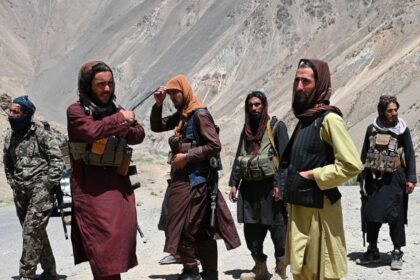RASC News Agency: Local sources in Badakhshan province have confirmed that Qari Shafiq Hafizi, the Taliban-appointed head of the provincial Directorate of Mines, has been dismissed following an intense internal conflict with the Deputy Minister of Mines and Petroleum. The dispute centered around the division of revenue from the highly profitable gold mines in Shewa district an issue that has once again exposed the growing factionalism and corruption within the Taliban’s governing apparatus. According to individuals familiar with the situation, the confrontation occurred during the deputy minister’s visit to Fayzabad, the provincial capital. Tensions flared over allegations of misappropriation and opaque handling of the income generated from the gold extraction operations. Eyewitness accounts report that the deputy minister departed the region carrying a gold ingot an act that has ignited further public outrage and heightened suspicions of illicit enrichment by Taliban officials under the guise of administrative duty.
Reports suggest that Qari Hafizi had long been entangled in the informal, highly lucrative trade networks that dominate Afghanistan’s mineral economy under Taliban rule. During his tenure, he allegedly accumulated significant wealth, bypassing formal accounting mechanisms and diverting profits for personal use. Following his removal, Hafizi is now said to be seeking the backing of influential Taliban powerbrokers in a bid to regain his position or maintain leverage within the regional mining sector. The gold mines of northern Afghanistan particularly in Badakhshan have emerged as critical sources of revenue for Taliban commanders and affiliated elites. However, rather than serving the public good or funding essential services for Afghanistan’s suffering population, these revenues are increasingly being used to fuel intra-group rivalries, enrich individual leaders, and reinforce informal patronage networks.
Independent observers note that this pattern of resource capture, in which national assets are controlled and exploited by a narrow clique within the ruling group, mirrors the very same predatory behaviors the Taliban once condemned during previous regimes. Yet under Taliban control, the absence of transparency, institutional checks, and independent monitoring has allowed such corruption to flourish unchecked. “Instead of investing mineral wealth in public infrastructure or healthcare, Taliban officials appear more focused on securing personal fortunes and consolidating power within their internal factions,” said a civil society activist from Badakhshan, speaking anonymously due to safety concerns.
Data compiled by local monitors and confirmed by international research organizations indicate that Afghanistan’s natural resources including precious metals, rare earths, and gemstones are increasingly being smuggled or sold in illicit markets, with minimal oversight or benefit to the population. Moreover, unregulated mining practices have triggered environmental degradation and displacement of local communities, while ordinary Afghanistanis continue to face poverty, food insecurity, and collapsing public services.
This latest episode in Badakhshan not only underscores the Taliban’s inability or unwillingness to manage Afghanistan’s resources transparently, but also reflects the deepening internal fragmentation that threatens to undermine the group’s already fragile grip on power. As Afghanistan’s economy continues to contract under international isolation and domestic mismanagement, the unchecked looting of its mineral wealth by Taliban elites reveals a governance model defined less by Islamic ideals and more by oligarchic self-interest.






